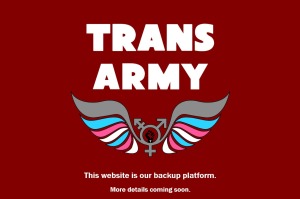ICANN to Mull .XXX, .GOD Domains
The board of the international body that manages Web addresses will hear arguments Friday for and against the .xxx top-level domain, which has been rejected three times since 2000.
On Friday, the last day of its 37th International Meeting in Nairobi, the Internet Corporation for Assigned Names and Numbers (ICANN) board is expected consider the latest proposal from ICM Registry, the company bidding to provide the registry service for .xxx.
Similar proposals in 2000, 2006, and 2007 were rejected by ICANN and had drawn strong opposition from conservatives groups such as the Family Research Council, which argued that "pornographers will be given even more opportunities to flood our homes, libraries, and society with pornography through the .xxx domain."
Though browsers or filters could be easily configured to automatically block sites designated as .xxx, Web experts have expressed concerns over the false sense of security that the top-level domain could give parents, who would still have to worry about pornography on .com sites as the addition of the .xxx domain would simply provide another platform for adult sites and not result in an exodus from .com domains.
"The .XXX domain will increase not decrease porn on the Internet," FRC President Tony Perkins had noted.
Also to be discussed during ICANN's March 7-12 meeting is whether or not to approve top-level domains such as .gay and .god – the latter of which has drawn opposition from the Vatican, which last year asked ICANN to keep religion out of the top-level domain name system.
Rajan Zed, president of the Universal Society of Hinduism, similarly cautioned ICANN about the hazards of allowing domains such as .catholic, .anglican, .orthodox, .hindu, .islam, .muslim, .buddhist or .god, arguing that they could generate discord and that religious bodies would end up contesting various cybersquatter registrations.
It is simply unwise and opening a Pandora's box, Zed stated.
Though top-level domain names will be discussed during ICANN's meeting this week, a final decision on them would take several months as consultation among ICANN members is expected.
Last year, ICANN relaxed its attitudes toward the types of characters that may be included in top-level domains, allowing web addresses to be written in non-Latin characters.
Calling Internationalized Domain Names (IDNs) the "biggest technical change" to the Internet since its birth 40 years ago, ICANN unanimously approved the plan on the final day of its six-day conference in Seoul.





























